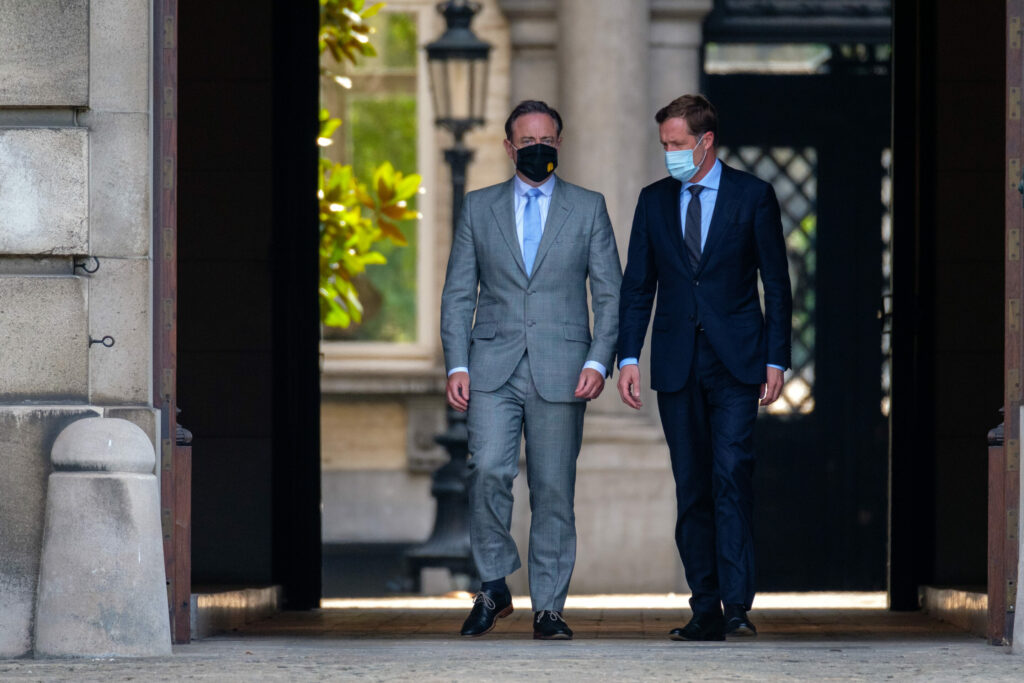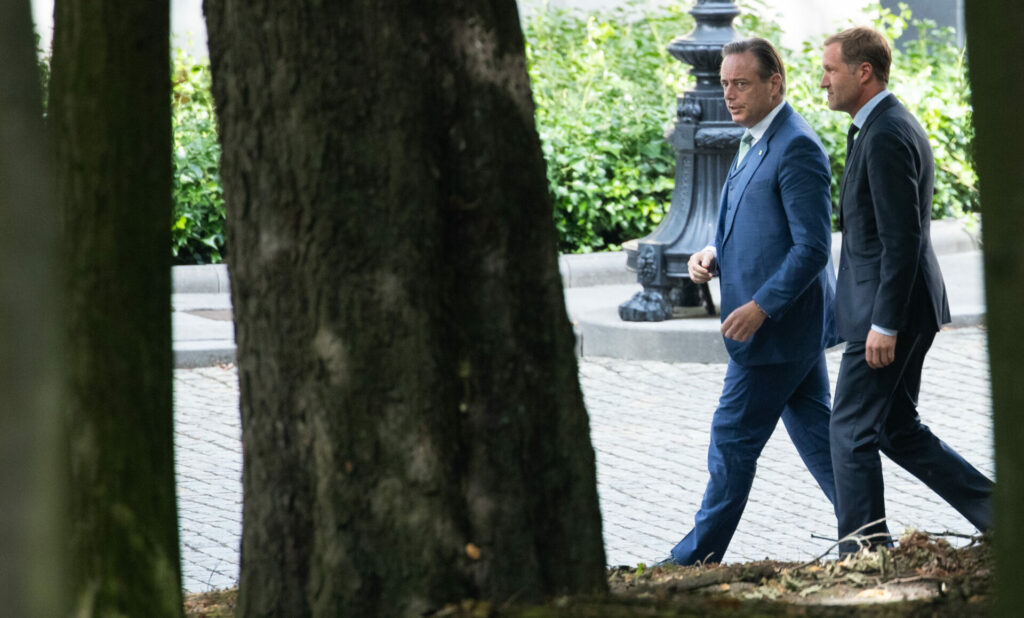The leaders of the Flemish rightwing nationalist N-VA and the Francophone Socialist Party (PS), Bart De Wever and Paul Magnette, agree on very little – apart from the fact that low earners should receive higher net wages.
The two clashed in a joint interview with De Tijd and L'Echo over the weekend. The topics discussed were mainly socio-economic: the employment rate, public spending, the budget, long-term sickness, low wages, confederalism, migration, and the rise of Vlaams Belang.
The two had not met in person for a year and a half but quickly established that little had changed regarding their long-standing disagreements and radically opposed visions of society. De Wever was especially concerned about Magnette's socio-economic project, which would lead to a considerable increase in taxes.
"€10-€15 billion in additional taxes, 70% to 80% of which will be paid by the north of the country. And you are planning a tsunami of new spending at a time when the deficit has already reached €45 billion," De Wever said. "Do you believe in your own programme?"
"I am still waiting for yours," responded Magnette.
The rise of the far-right
Magnette rejected De Wever's accusation that the PS encourages welfare in Wallonia and people who do not work. "Mr De Wever is terribly predictable. I have heard that argument countless times and I have always stood up against it because it is exactly the opposite of what we are doing. It is the opposite of what I believe in."
"I became a socialist because I believe in work and in emancipation through work," Magnette continued. "And because the men and women who come from working-class backgrounds have had, and still have, nothing but work to get by."
De Wever criticised Magnette and the rest of the current Federal Government for creating the conditions that allowed Vlaams Belang to rise. He took particular aim at what he called an open borders policy and an overly generous social security policy, particularly for new arrivals and the unemployed.
"So I am also responsible for the growth of the far-right in Flanders now? You really do give me a lot of power," Magnette said.

N-VA leader Bart De Wever (left) and PS chair Paul Magnette leave after a meeting with the King at the Royal Palace in Brussels, August 2020. Credit: Belga/Nicolas Maeterlinck
Despite their differences, the two party leaders found common ground on one issue: that the net wages of low earners should be raised by €300 to convince people who are not working to start looking for a job. "For the same reason, we should look at those social benefits. They should no longer depend on someone's status, but should depend on someone's income," Magnette said. De Wever wholeheartedly agreed.
The PS sees this solution as the road out of unemployment traps. "This way, more people will start working and we will also solve part of our budget problem. And that is a much better way than your austerity policy," he told De Wever.
"You and I live on a different planet," De Wever stressed. "Mr Magnette dreams of debt, I dream of cuts."
Historic agreement?
Despite their many differences, Magnette and De Wever will most likely find themselves back around the same negotiating table – where they also negotiated during the summer of 2020 – after the elections on 9 June.
While some claim that a "historic" agreement was on the verge of being concluded at the time, the PS insisted that these negotiations were necessary to demonstrate (especially to the Flemish public) that a coalition between the two parties was impossible in practice.

